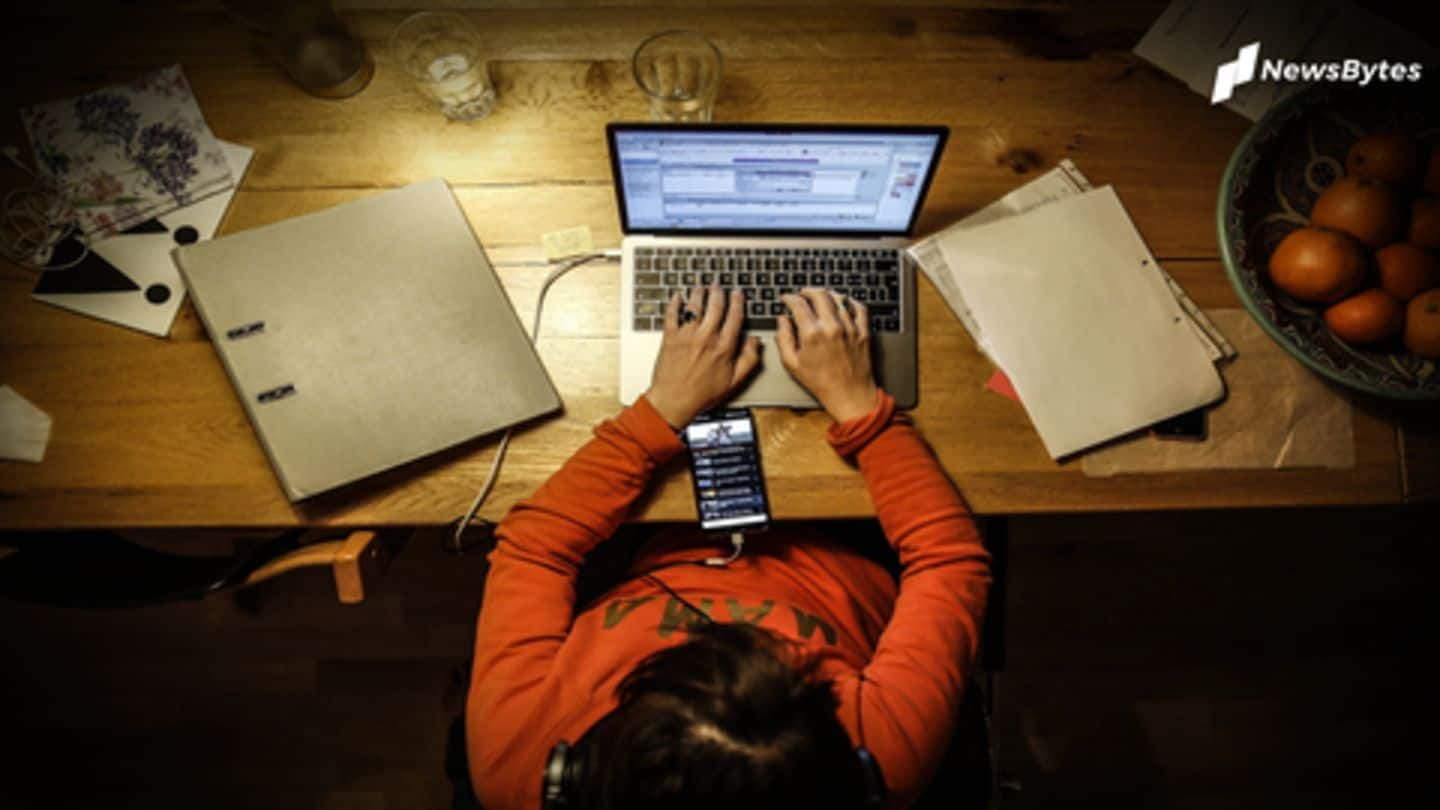
Work from home: The new reality of the 'post-coronavirus world'
What's the story
In the new "upside-down" world, masks and gloves have replaced hugs and handshakes. Courtesy coronavirus, there's uncertainty, fear, anxiety, and most importantly distancing.
The way we live, and work, has changed forever. Consequently, a large number of companies have embraced the "Work From Home Culture". Despite some companies resuming operations, employees are worried.
So, is work from home the new normal? It seems so.
Changed culture
There's no cure for coronavirus, only precautions
The virus, which originated in China last year and is transmitted easily, can't be defeated, yet. There's no vaccine, and the only weapon the human race has is distancing.
To promote the same, countries locked themselves down, and businesses were shut, as employees were asked to work from the confines of their homes.
The idea was new for many. Naturally, some approved, some didn't.
Announcements
Tech biggies let employees work from home
Understanding how much of a risk the presence of a number of people in closed spaces poses, tech giants led the way. Twitter's CEO Jack Dorsey announced that employees can work from home forever.
Microsoft kept the option open till October, and Google, till 2020 end.
Facebook said within the next decade, a humongous 45,000 employees could be working from home.
India's approach
In India, Centre could let employees work remotely
Closer home, the Government of India could allow employees to work remotely for 15 days in a year.
According to draft guidelines, the Ministry of Home Affairs and the National Informatics Center (NIC), which gives tech support to the government, will work closely to define protocols for tackling classified files.
Some 75 ministries have been actively using the NIC's e-office platform currently.
IT sector
Meanwhile, the trend has picked fast in IT sector
Nearly 30 lakh IT employees, are already working from home, reports ET.
40% of TCS employees were asked to work from home, and Accenture opened this option for 60% of employees in India and the Philippines.
By 2025, 75% of TCS employees could be functioning remotely. COO N Ganapathy Subramaniam explained only 25% have to be in the office, to ensure 100% are productive.
Idea
Tech Mahindra isn't averse to the idea either
Among other companies that are toying with the idea is Tech Mahindra, which wants 25% of employees to not come to the office.
"Technology solutions will quickly evolve but it is the human angle that will be important to watch," MD CP Gurnani said.
CEO and MD of Lenovo India, Rahul Agarwal said both employers and employees were adapting to the new normal.
Banks
Axis Bank's official sees no harm in remote working
Even banks are ditching the traditional way of working. Rajkamal Vempati, Executive Vice President & Head - HR, Axis Bank, revealed 20-30% of employees will work remotely.
Those involved in services like phone banking, HR, and corporate offices, can work virtually as they don't need to deal with consumers daily.
Companies are fast realizing that employees' presence inside cubicles wasn't that necessary after all.
Aftermath
WFH culture has hit commercial real estate, but turnaround expected
Notably, commercial real estate, which has largely been recession-proof, became the biggest collateral damage of this work-from-home culture.
Ashutosh Limaye, Director & Head-Consulting, Anarock Property Consultants, said, "The coronavirus has thrown a serious spanner into the works of this lucrative real estate segment, at least for the next two quarters."
While traditional office setups will suffer, he predicted a boom for cost-effective co-working spaces.
Returning to work
As curbs were eased, some employees returned to work
With restrictions lifted, some employees returned to offices in India. However, they realized everything has changed.
In most cases, guards welcomed employees with a temperature gun, seats were placed at a distance, the number of meetings was truncated, and employees avoided using notebooks.
The trips to the cafeteria have become less frequent, too, while some prefer bringing their beverage in their own thermos.
Mental health
WFH seems lucrative but it affects mental health
While staying indoors and working from home seems like a win-win situation (employees save time on travel, can work even from smaller cities, etc.), it takes a toll on mental health.
Blind, a US-based anonymous professional network with 3.2 million verified users, found in a survey that 52.9% of respondents, spread across Google, Facebook, Walmart, LinkedIn, etc., faced loneliness working remotely; 56.4% felt anxious.
Tips
Sticking to a schedule is extremely important
As it is amply clear that remote working isn't going anywhere, it is important for employees to demarcate personal and professional lives to avoid work-life conflicts.
Sticking to a routine, getting dressed like earlier, and not procrastinating are some of the tips that can make working from home easier.
The pandemic is tough, and all one can do is make things easier for themselves.